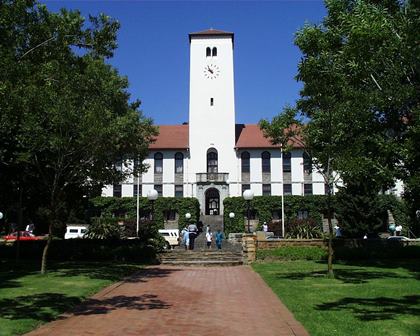Walk-in registrations are not feasible at Rhodes or most institutions because the registration process is online. The EFF Student Command at Rhodes University said this in response to questions about EFF party leader Julius Malema’s call on Monday for potential students to walk in at universities to apply for places. This was in response to President Jacob Zuma’s announcement of free university education.
On 16 December, following a last-minute announcement in a political move by Zuma, students around the country celebrated the announcement that fee-free higher education would kick in this year.
Zuma said university fees would be fully subsidised for students in the bottom-income 90% of households across South Africa. This came in the aftermath of #FeesMustFall protests of 2015 and 2016.
At the end of 2016, Rhodes University announced the fall of the minimum initial payment (MIP). However, the 2017 academic year proved to be financially taxing for Rhodes. As a result students are now required to pay an Initial Fee Payment consisting of 10% tuition and 25% residential fees. NSFAS and NSFAS-qualifying students are exempt from this payment.
A statement issued by Rhodes on 9 January read, “The drastic reduction in upfront payment… created serious operational and cash flow problems, which threatened the University’s academic enterprise and the quality of services to students… Without any significant cash reserves and having operated for years as a going concern on the basis of a healthy cash flow enabled by a relatively exclusive and well-off constituency it served, the financial risk became real.”
Students who celebrated on 16 December now face confusion over fees.
TIMESlive reported on the morning of 8 January, Malema called for students to “invade institutions”, despite Higher Education Minister Hlengiwe Mkhize’s warning that only accepted students would be eligible for the fee subsidy.
Zweli Hlatshwayo from the EFF Rhodes Student Command told Grocott’s Mail that they will be ready to support students who wish to register. “Students must come who can’t access the internet and we will assist them”, he said.
The Student Command rejects Rhodes’ implementation of the Initial Fee Payment in lieu of the formal agreement to eliminate the MIP at the end of 2015.
The organisation stated on social media, “The EFFSC will be opening a case against Rhodes University and will ensure that the university sticks to this agreement as signed by the President of the SRC and the Vice-Chancellor in 2015.”
Hlatshwayo emphasised that a ‘walk in’ is not feasible at Rhodes or most institutions due to the registration process being online and students in rural areas having little to no internet access.
Overall at Rhodes there is a definite fee increase from 2017. The Intial Fee Payment of 2018 (10 percent tuition and 25 percent residence fees) has increased from the 2017 Registration Fee (10 percent combined tuition and residence fees). International students will pay an overall increase of as much as 10 percent.



